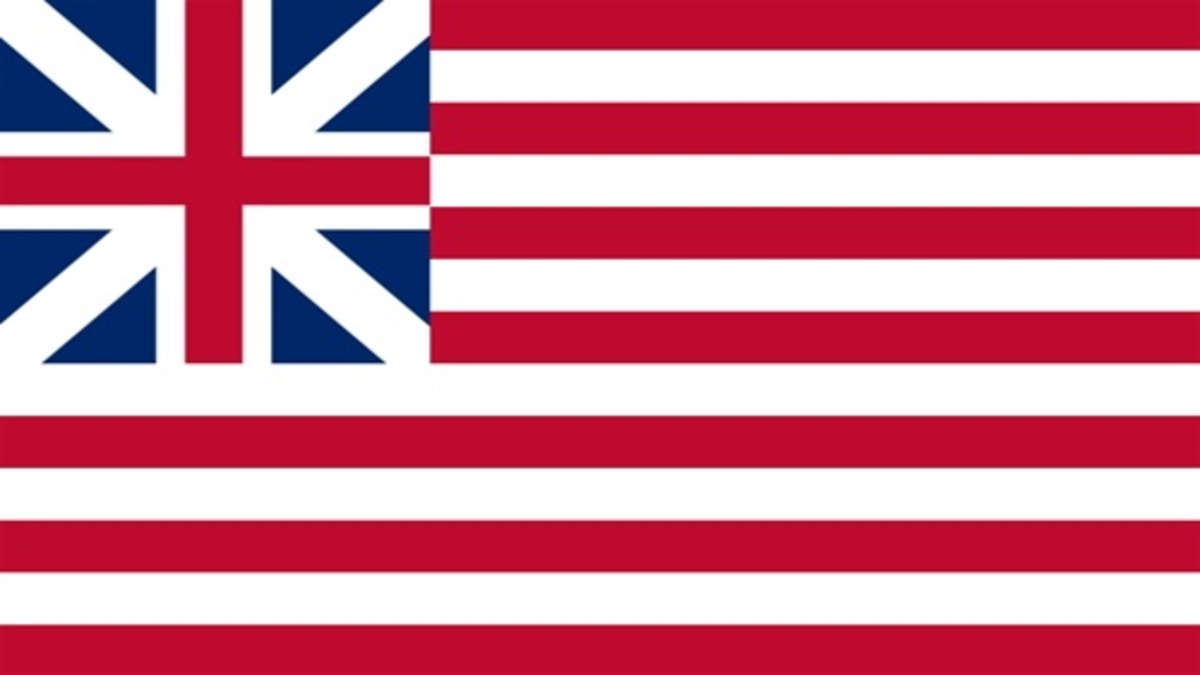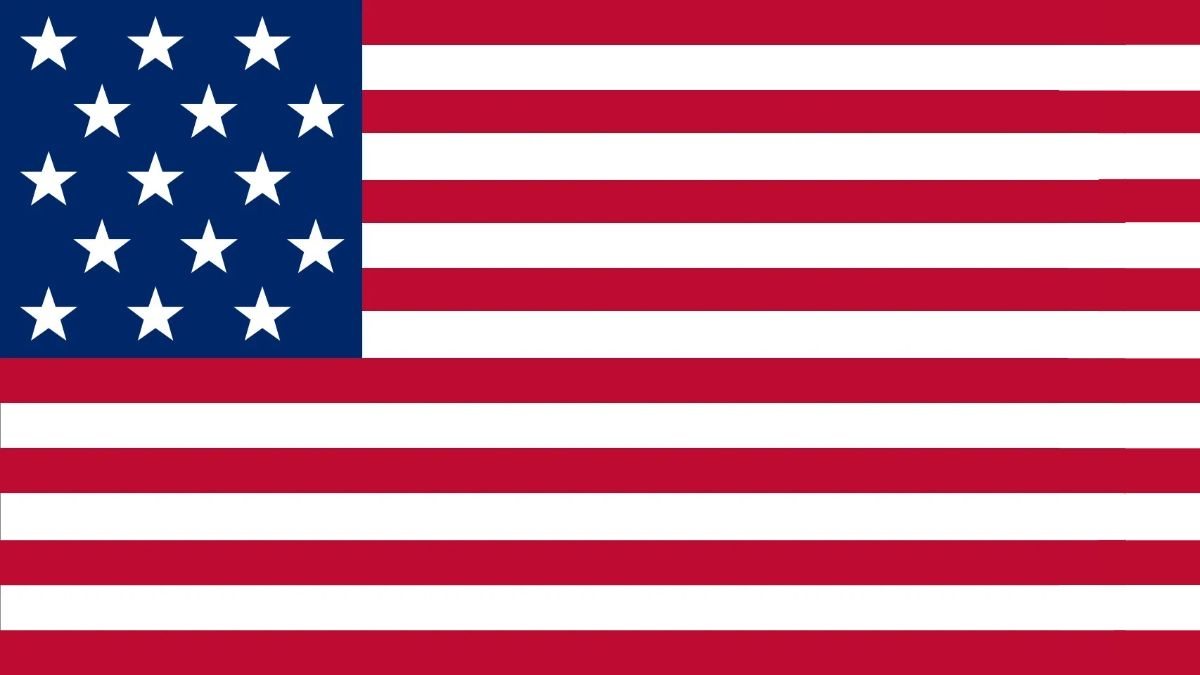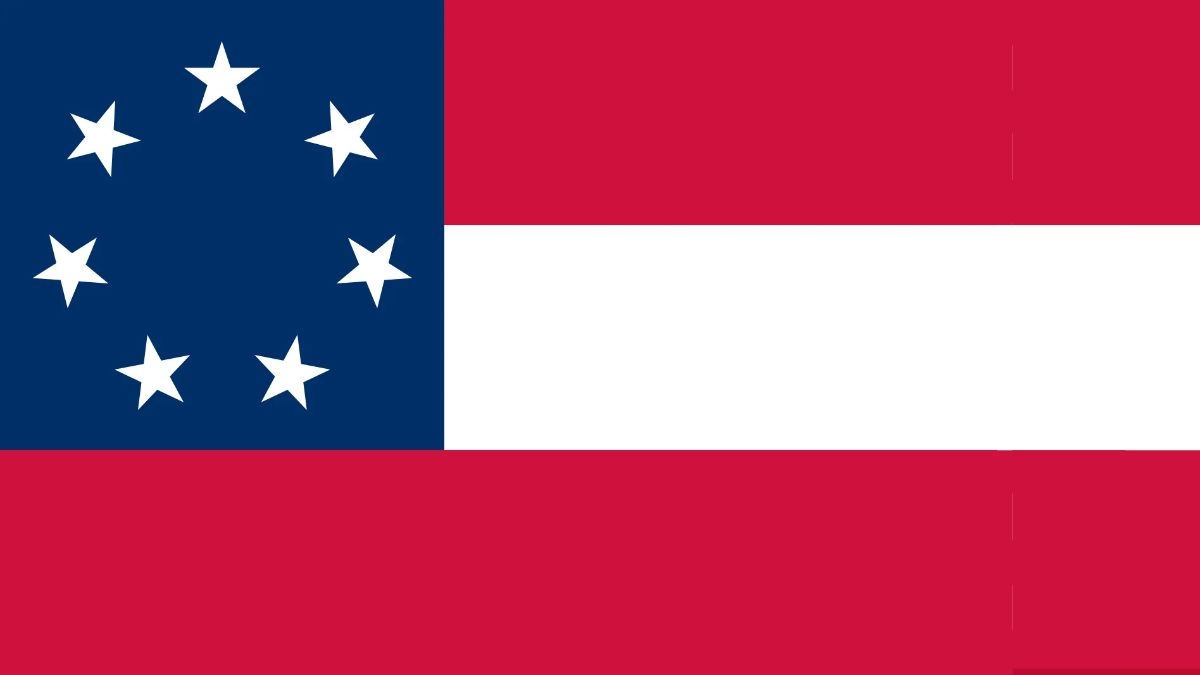The American Revolution marked a crucial turning point in the history of the United States, leading to the emergence of a new nation and the need for a symbol to represent its identity. This article explores the historical development of American flags, from the unofficial Continental Colors to the iconic Stars and Stripes. It also delves into the significance of these flags and their evolving symbolism over time.
There are three types of American military flags today: Personal Flags; Service Flags; Maritime Flag.
The Continental Colors and Rattlesnake Flags

After the American Revolution began, a significant event took place on January 1, 1776, when the first unofficial national flag, known as the Continental Colors or the Grand Union Flag, was raised on a towering liberty pole at Prospect Hill in Charlestown (now in Somerville), Massachusetts.
This flag, with its 13 horizontal stripes, potentially in red and white or red, white, and blue, featured the British Union Flag in the canton. It served as the flag of the Continental Army and was flown at forts and on naval vessels.
During the Revolutionary War, various versions of rattlesnake flags, featuring the motto "Don't Tread on Me," appeared on many American colonial banners. The Gadsden flag, as well as the flag carried by the Minutemen of Culpeper County, Virginia, with the addition of Patrick Henry's famous words "Liberty or Death," were notable examples.
The Stars and Stripes

On June 14, 1777, the Continental Congress officially approved the first national flag, known as the Stars and Stripes.
The Flag Resolution stated that it would consist of thirteen alternating red and white stripes, representing the thirteen colonies, and a union with thirteen white stars on a blue field, symbolizing a new constellation.
Although the designer is uncertain, Congressman Francis Hopkinson from Philadelphia is often attributed with creating the pattern of stars arranged in a ring.
The Stars and Stripes made its significant appearance on September 11, 1777, at the Battle of the Brandywine, where it was carried as part of the military colors.
This battle marked one of the earliest documented instances of the flag's use in a military context, solidifying its role as a symbol of the United States.
Evolution of the Stars and Stripes
The Stars and Stripes underwent modifications and clarifications over time. On May 1, 1795, Congress enacted the second Flag Resolution, mandating the addition of new stars and stripes to the flag upon the admission of new states.

The first two states added were Vermont (1791) and Kentucky (1792). Notably, the "Star-Spangled Banner," a large flag created by Mary Pickersgill, inspired Francis Scott Key to write the poem that later became the national anthem.
In 1818, Congress passed the third and final Flag Resolution, setting the standard that the flag should have thirteen stripes representing the original colonies, the number of stars should match the number of states, and any new star should be added on July 4 following a state's admission.
This system remains in place to this day. From 1777 to 1960, with the admission of Hawaii in 1959, there were 27 versions of the flag, primarily involving changes in the arrangement of the stars. In 1912, an executive order by President William Howard Taft standardized the proportions and colors of the flag.
Symbolism and Patriotism
The colors of the Stars and Stripes, red, white, and blue, have no official assigned meanings. However, Charles Thomson, secretary of the Continental Congress, suggested that white represents purity and innocence, red symbolizes hardiness and valor, and blue signifies vigilance, perseverance, and justice.
The flag has long been a focus of patriotic sentiment. Since 1892, the Pledge of Allegiance to the Flag has been recited by millions of schoolchildren at the beginning of each school day.
The national anthem, with its lyrics focused on the flag, further highlights its symbolic significance. However, debates have arisen regarding flag desecration laws, with arguments weighing freedom of expression against the need to protect national symbols.
The Confederate Flags

During the American Civil War, the Confederate States of America adopted several flags. The first, known as the Stars and Bars, was used from March 5, 1861.
Subsequently, the Confederate Battle Flag gained prominence. In May 1863, the Confederacy introduced the Stainless Banner as its first official national flag, followed by a modified version in March 1865, shortly before the war's end.
Controversies
In the latter part of the 20th century, the display of Confederate flags on public buildings, including state capitols, became a contentious issue.
Supporters viewed it as a symbol of Southern heritage and sacrifice, while opponents saw it as a reminder of racism and slavery, deeming it unsuitable for official use.
In the current times, United States of America uses the the Star-Spangled Banner.
ALSO READ| List of Top 50 US States by Population
ALSO READ| List of US States by Area
ALSO READ| Unraveling the Symbolic Nicknames of US States
Comments
All Comments (0)
Join the conversation